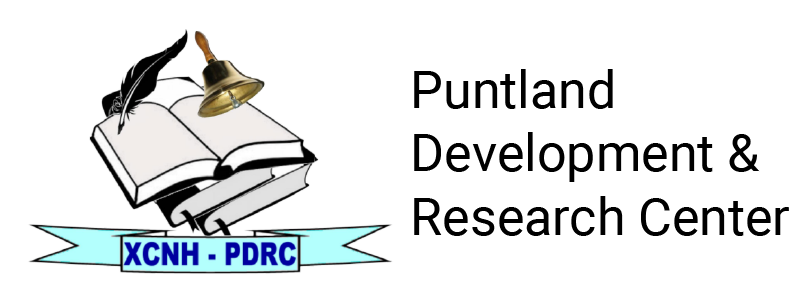
The following years, through close cooperation with International Organizations, the local community and the Puntland Administration, the center steadily progressed by realizing vital and genuine exertions for the area. The following timeline of PDRC activities represents obvious evidence and source of verification:
2001
This year marked the onset of Puntland constitutional crisis, between the then administration and opposition groups. The center, thus implemented the Puntland Peace Mission (PPM) that aimed at preventing the escalation of hostilities and saving the area from disintegration. The mission, under the sponsorship of some international organizations and Puntland Diaspora, organized peace rallies across the whole area and shuttled between the main protagonists of the crisis.
Other activities in this year included:
- Conducted interactive research on :
“Demobilization and Integration of Militia and Armed Groups”. Funded under the auspices of the Somali Civil Protection Program – SCPP/UNPD, a comprehensive report, which now serves as reliable reference material, was produced. - Conducted an interactive participatory research into the “Harmonization of Legal Codes”
(Customary, Sharia, and Secular) in Puntland, as part of a broader civil protection program under the auspices of Diakonia-Swedish, an INGO, and UNDP, the output of which: Pastoral Justice-Book One; Four workshops on the issue with total participants of 199 (30% were female). In August 2001, Puntland Development Research Center completed construction of new, permanent premises in Garowe, including office space, training rooms, and conference feasibilities, that had significantly contributed to the Research Center’s sustainability. - PDRC conducted, on contract from Diakonia, an evaluation on the Puntland Community College:
a two-year tertiary education college for management and administration. The output is the present flourishing “Puntland State University” (former PCC). The center’s Reading Team participated in the assessment of the draft “Human Development Report 2001” under a UNDP contract. Mark Bradbury, the study coordinator and consultant, in his final “thank you” email said: “The contribution from PDRC was particularly impressive”.
2002
The center activities were hampered by the tense political and security situations that prevailed in Puntland. However, the center carried out:
- Second Phase of “Harmonization of Somali Legal Traditions,” – Book Two; the programme was funded by Diakonia.
- One survey and four workshops: Total participants: 300 (100 women).
2003
Based on the above surveys and the subsequent workshops, the center implemented the Judiciary Training Program. The programme was funded by UNDP through the partnership with Diakonia and the Center. In October 2003 through to December – 2004: 45 judges were trained. Also during this year the center started the implementation of the following works (most of these
were completed in year 2004:
- Produced a Socio-economic Assessment on Puntland: funded by World Bank and UNDP.
- Conducted a Conflict Analysis Framework (CAF) Study for World Bank.
- Continued to implement the final components of the Judiciary Training Program. Funded by United
- Nations Development Program (UNDP) through Diakonia.
2004-2008
The Dialogue for Peace Programme – both the capacity and experience of the organization had matured enough for it to implement more sophisticated and fashionable programmes. Through the partnership with Interpeace, the center started the implementation of an ambitious Project: “Dialogue for Peace – DfP”. In early 2004 a “Conflict Mapping Exercise” was done, whereby four Entry Points (EP), that required in-depth research were identified:
1) The democratization of Puntland Political System, 2) The Public revenue Management, 3) Consolidation of 1993 Mudug Peace Agreement, and 4) National Reconciliation.
Other achievements in this period include, institutionalization and establishment of representative body of Non-State Actors (NSA), and Improvement and strengthening of relationships among the stakeholders (Government, Donors and NSA). As a result, the Puntland Non-State Actors Association (PUNSAA) was established. PUNSAA is, at present, the largest Civil Societies Organization operating in Puntland.
The final products on the researched entry points have been completed and three main documents published in December. In fact, the publications:
2009-2016
2009-2016: The Pillars of Peace Programme – During the past six years, PDRC and the International Peace-building Alliance (Interpeace) have been implementing the Pillars of Peace (POP) Program. The PoP is designed to promote peace and state-building through reinforcing capacities of societies and government institutions. The POP launched its phase II program in October 2015 with the following thematic area of focus:
- Security, Rule of Law and Social Reconciliation.
- Decentralization and Local Governance
- Democratization of Puntland Political System.


